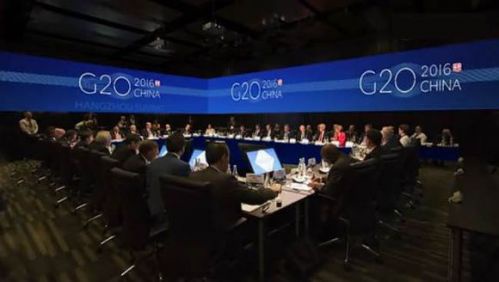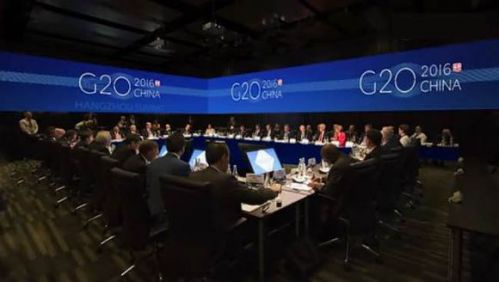
By Leonardo C. S. Ramos, Javier Alberto Vadell
On September 4 and 5, the 11th G20 Summit will be held in Hangzhou, China. The theme of the summit this year is “Towards an Innovative, Invigorated, Interconnected and Inclusive World Economy.” Among the upcoming agendas, the following ones deserve particular attention.
First of all, “breaking a new path for growth,” which aims at pushing forward global agendas, has been listed as a key agenda item for the first time. Historically speaking, to deal with the impact of the global financial crisis, the G20 has attached great attention to the consultation and formulation of monetary and financial policies.
As the world economy has been experiencing low growth rate since 2008, major world economies crave a long-term plan. Amid such backdrop, “Breaking a new path for growth” is of great significance to boosting trade and investment. Some analysts hail the initiative of formulating a blueprint for innovative growth as one of China’s major contributions to the G20.
Secondly, combining trade-related agendas with technological topics, the “G20 blueprint for innovative growth” can help the world comprehensively understand the importance of scientific innovation to trade. Given the declining global trade growth, G20 members agreed to hold regular Trade Ministers Meetings and set up supporting working groups at the Antalya Summit in 2015.
To implement the task, China has successfully established the G20 Trade and Investment Working Group. From 2016 onward, the G20 will provide not only a communication platform for Finance Ministers and Central Bank Governors, but a consultation podium for Trade Ministers.
Thirdly, infrastructure-related agendas will be highlighted. The G20 Investment and Infrastructure Working Group has identified three pillar agendas, namely encouraging multilateral development banks to advance infrastructure investment by taking joint actions, promoting global infrastructure connectivity, as well as exploring diversified financing approaches and fostering private financing.
To this end, China has played a positive role in leading the establishment of multilateral development banks across the globe, as exemplified by the Asian Infrastructure Investment Bank and the BRICS New Development Bank. As a matter of fact, these banks have already started operations, and will in turn improve the multilateral development system.
The “Belt and Road” initiative proposed by China also sets an example for the international community to strengthen connection through infrastructure construction. Its contributions to the export and import of concerned economies also speak for themselves.
Moreover, as the quota reform of the International Monetary Fund is yet to be implemented, the G20 Hangzhou Summit will, to some extent, accelerate this process as well as the reform on the voting rights of the World Bank.
Fourthly, discussion on development-related topics will promote the implementation of the 2030 Agenda for Sustainable Development. Beginning from 2008, topics related to global development were included in G20 agendas in different forms, but the Hangzhou Summit will look closely at development through a broader horizon and treat it as a part of the global governance architecture.
To sum up, China will play a big part in pushing for progress in key G20 agenda items. How will China’s investment proposals on infrastructure construction integrate with previous G20 plans in the area? How will the agendas of the G20 Hangzhou Summit transform the G20 into long-term mechanism that is capable of coping with more extensive world economic issues, instead of just being a crisis response mechanism? These questions will be answered in Hangzhou this September.
(Both authors are international relations professors of the Pontifical Catholic University of Minas Gerais.)
On September 4 and 5, the 11th G20 Summit will be held in Hangzhou, China. The theme of the summit this year is “Towards an Innovative, Invigorated, Interconnected and Inclusive World Economy.” Among the upcoming agendas, the following ones deserve particular attention.
First of all, “breaking a new path for growth,” which aims at pushing forward global agendas, has been listed as a key agenda item for the first time. Historically speaking, to deal with the impact of the global financial crisis, the G20 has attached great attention to the consultation and formulation of monetary and financial policies.
As the world economy has been experiencing low growth rate since 2008, major world economies crave a long-term plan. Amid such backdrop, “Breaking a new path for growth” is of great significance to boosting trade and investment. Some analysts hail the initiative of formulating a blueprint for innovative growth as one of China’s major contributions to the G20.
Secondly, combining trade-related agendas with technological topics, the “G20 blueprint for innovative growth” can help the world comprehensively understand the importance of scientific innovation to trade. Given the declining global trade growth, G20 members agreed to hold regular Trade Ministers Meetings and set up supporting working groups at the Antalya Summit in 2015.
To implement the task, China has successfully established the G20 Trade and Investment Working Group. From 2016 onward, the G20 will provide not only a communication platform for Finance Ministers and Central Bank Governors, but a consultation podium for Trade Ministers.
Thirdly, infrastructure-related agendas will be highlighted. The G20 Investment and Infrastructure Working Group has identified three pillar agendas, namely encouraging multilateral development banks to advance infrastructure investment by taking joint actions, promoting global infrastructure connectivity, as well as exploring diversified financing approaches and fostering private financing.
To this end, China has played a positive role in leading the establishment of multilateral development banks across the globe, as exemplified by the Asian Infrastructure Investment Bank and the BRICS New Development Bank. As a matter of fact, these banks have already started operations, and will in turn improve the multilateral development system.
The “Belt and Road” initiative proposed by China also sets an example for the international community to strengthen connection through infrastructure construction. Its contributions to the export and import of concerned economies also speak for themselves.
Moreover, as the quota reform of the International Monetary Fund is yet to be implemented, the G20 Hangzhou Summit will, to some extent, accelerate this process as well as the reform on the voting rights of the World Bank.
Fourthly, discussion on development-related topics will promote the implementation of the 2030 Agenda for Sustainable Development. Beginning from 2008, topics related to global development were included in G20 agendas in different forms, but the Hangzhou Summit will look closely at development through a broader horizon and treat it as a part of the global governance architecture.
To sum up, China will play a big part in pushing for progress in key G20 agenda items. How will China’s investment proposals on infrastructure construction integrate with previous G20 plans in the area? How will the agendas of the G20 Hangzhou Summit transform the G20 into long-term mechanism that is capable of coping with more extensive world economic issues, instead of just being a crisis response mechanism? These questions will be answered in Hangzhou this September.
(Both authors are international relations professors of the Pontifical Catholic University of Minas Gerais.)
 Menu
Menu
 Commentary: Expectations running high on G20’s blueprint of innovative growth
Commentary: Expectations running high on G20’s blueprint of innovative growth
















